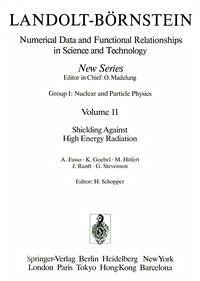This volume is an introduction to the problem of shielding against high-energy radiation. Its aim is to give guidance when estimating and assessing shielding for high-energy accelerators and experiments. The understanding of the relevant physical phenomena evolved with the development of the modern high-energy accel- erators for both protons and electrons. These experimental facilities as well as space flights, where man is exposed to natural high-energy radiation, created the need for designing shielding against these radiation sources. The processes involved in high-energy hadron and electromagnetic interactions can be largely simulated by Monte-Carlo calculations. Results from such simulations are presented in the relevant chapters, together with experimental data. The quantitative information pertinent to shiedling estimations is given in the form of formulae, graphs and tables. The energy range above 1 BeV up to 10 TeV, chosen for the primary particles, corresponds to that of the highest energy accelerators and colliders, existing or planned, used for studying structures and systematics of elementary particles. It is also the energy range fo the dominant part of the galactic radiation detectable on the earth surface in the form of secondary muons or large extended showers.
Bitte wählen Sie Ihr Anliegen aus.
Rechnungen
Retourenschein anfordern
Bestellstatus
Storno

